How To Train A Puppy
A Primer For New Puppy Owners
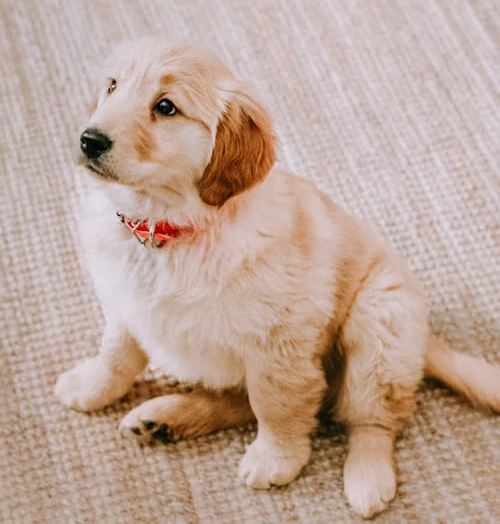
Why is it So Important to Learn How to Train a Puppy?
Simply put, learning how to train a puppy is one of the best things you can do to build a strong, lasting bond with your new best friend. It’s going to make your life easier and your puppy’s life much more enjoyable.
Proper training helps your puppy grow into a well-behaved, socially acceptable dog that you can confidently take anywhere.
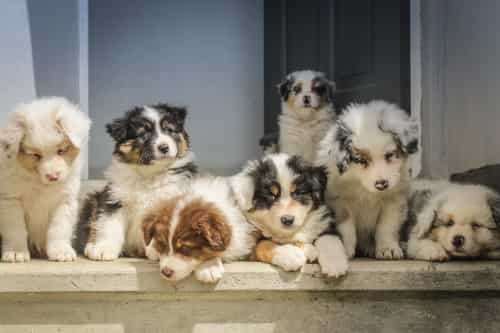
Let’s face it: puppies are adorable. They also come with a whole lot of potential (both good and bad)!
Without proper guidance, that potential can easily lead to some not-so-great behaviors.
Puppies don’t come into the world knowing the difference between right and wrong, so it’s up to us to show them.
And trust me, we can’t gripe about their behavior if we don’t take the time to train them!
Teach Your Puppy How To Survive
From the moment they enter the world, puppies are full of curiosity and eagerness to explore everything around them.
But in those early days, they’re also learning how to survive in their new "pack" (that’s you, by the way). This is the best time to teach them the foundational skills that will shape their behavior.
When you know how to train a puppy, you can guide them through these important lessons so they can fit in happily and confidently with their new family.
The good news? As you teach your puppy these survival skills, you'll also be setting up a clear line of communication with him. The bond between the two of you will grow stronger with each successful step in their training.
What Happens If A Puppy Isn't Trained?
If a puppy isn’t trained, well, let's just say things can get a little chaotic! Left to their own devices, puppies tend to develop all sorts of bad habits.
We're talking about things like:
- Leaving puddles around the house,
- Chewing on your favorite shoes or furniture,
- Nuisance barking,
- General accidents from lack of coordination.
Not quite the puppy dreams you had in mind, right?
But remember, to your puppy, anything is fair game unless they’re shown otherwise.
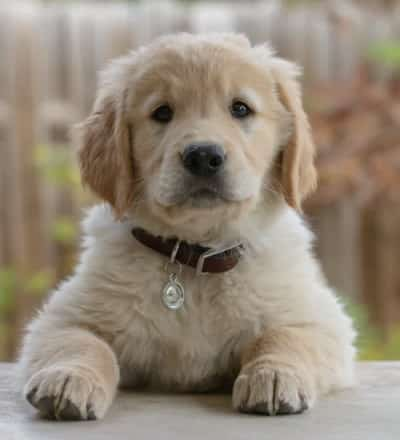
How To Train A Puppy With Confidence
When it comes to training your new puppy, confidence is key! If you're unsure or inconsistent, your puppy will pick up on it. You need to be confident in the training method you choose and stick with it.
The best methods? Positive reinforcement and praise. Think of it like this: teaching firmly but kindly, and never resorting to shouting or punishment. Puppies respond so much better when they feel safe and encouraged.
Remember, your puppy is still a baby with a short attention span, so keep that in mind during a lesson and stop short of losing his focus!
Don't forget to take advantageous of their natural playfulness to make the learning process fun for both of you. And, always be patient.
Give him a wide birth when it comes to mistakes. Mistakes will happen – they will – and that's okay! Deal
with them as you would with a young child - as an opportunity to correct and
reinforce the desired behavior.
Don't get all wound up about mistakes as you'll be missing an important part of training - the bonding that occurs when it is done in a friendly, non-threatening way. You can do this by staying calm and patient.
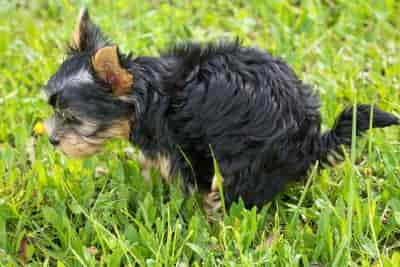
Keep Training Sessions Short
Puppies have very short attention spans, so try to keep your training sessions brief and focused.
Aim for 5-10 minutes at a time, multiple times a day, rather than one long session. This helps prevent your puppy from getting frustrated or bored.
Think of it like little bursts of learning – you’re setting them up for success with every short session!
Consistency Is Key
Consistency is one of the most important parts of puppy training. If you want your puppy to learn quickly, make sure that everyone in your household is on the same page.
Use the same commands and rules for your puppy. For example, if one person allows the puppy to jump on the couch and another doesn’t, your puppy will get confused.
Consistency helps them learn faster and builds trust because they know what to expect from you.
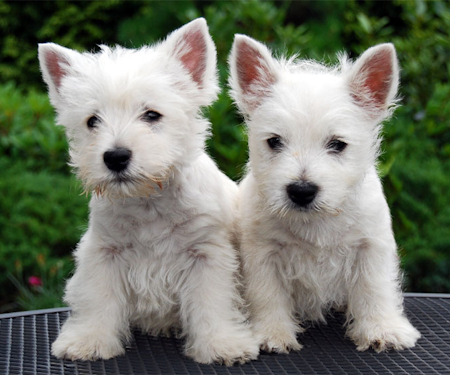
Socialization Is Crucial
Socialization is one of the best gifts you can give your puppy. It’s not just about introducing them to other dogs (though that’s super important!).
It’s about getting them used to all kinds of new sights, sounds, people, and places.
The more experiences they have in their early months, the more confident they’ll be as they grow up.
Aim for safe, positive encounters with different people, environments, and animals to help your puppy feel comfortable in the world around him.
When To Begin Training
So, when should you start? The best time to begin training your puppy is as soon as you bring them home.
Potty training will probably be your top priority, but you can also start introducing socialization with other dogs and people right away.
Later, you can move on to more advanced skills like leash training and teaching basic commands (sit, stay, leave-it, etc.).
During this time they will also
be learning their name.
And don’t ever forget: while you’re enjoying that adorable puppy, you’re also laying the groundwork for a lifelong, loving relationship with your furry friend.
Every training session, no matter how small, helps your puppy become the dog you’ll treasure for years to come.
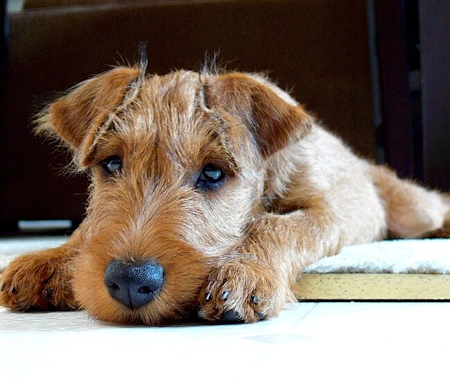
Use Positive Reinforcement
While you’re teaching your puppy, make sure to celebrate their successes! Positive reinforcement works wonders in puppy training.
Whether it's a treat, a toy, or lots of praise, rewarding your puppy for doing something right will help them associate good behavior with positive outcomes.
And who doesn’t love a little treat now and then?
Be Patient and Avoid Punishment
I know I keep harping on patience, but that's what it takes when you're learning how to train a puppy - lots of it!
Puppies are still learning too, and just like with any young learner, they will make mistakes.
This is completely normal! Instead of punishing them when they do something wrong, redirect their attention to the right behavior.
For example, if your puppy starts chewing on something they shouldn’t, gently take the item away and offer them a toy instead.
The goal is to teach them what they can do, rather than focusing on what they can’t do. Reward based training keeps your pet moving forward.
Set Realistic Expectations
It’s easy to get excited and expect a lot from your new puppy, but keep in mind that they are babies!
They’re still learning about the world and don’t have the same impulse control or attention span as older dogs.
Be tolerant with your puppy, and set realistic expectations for their progress.
Celebrate the small victories along the way – whether it's a successful potty break or learning to sit on command – every little achievement is worth a round of applause.
Puppy-Proof Your Home
Before bringing your puppy home, it’s important to puppy-proof your space.
This means keeping hazardous items (like electrical cords, toxic plants, and small objects they could swallow) out of reach.
It also means setting up designated areas for your puppy to explore and play, so they don’t get into trouble while you’re still in the early stages of training.
By setting them up for success, you’ll avoid frustration for both of you and help your puppy learn how to behave in their new environment.
Before You Go...
If you like the content of this page, as well as others on my site, please give it some love by clicking on the heart in the lower right hand corner. This helps me keep providing enjoyable and useful content.
Thank you.
Related Topics
- Home ›
- Dog Training ›
- Train A Puppy
Westies image: Lucie Tylová CC BY-SA 3.0, via Wikimedia Commons
Jodie Wilson, CC BY 2.0 , via Wikimedia Commons

